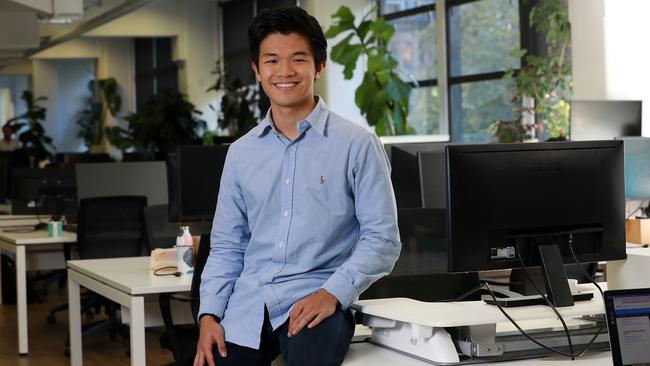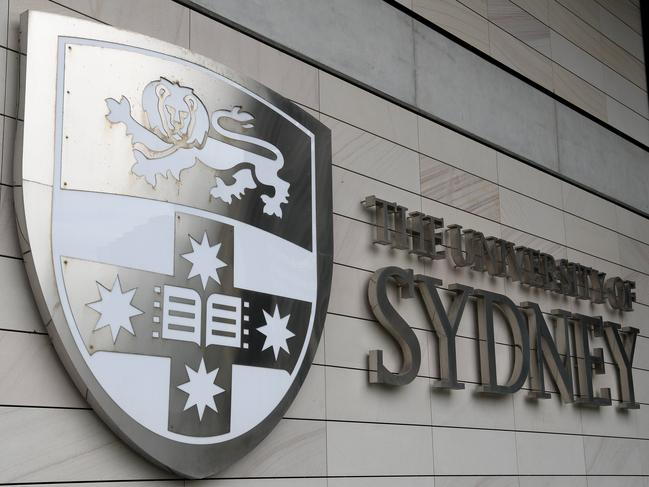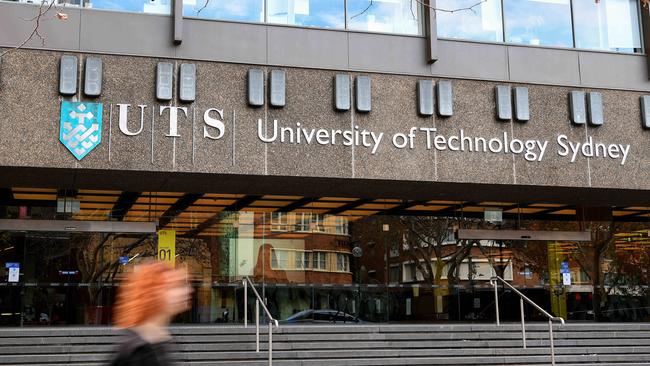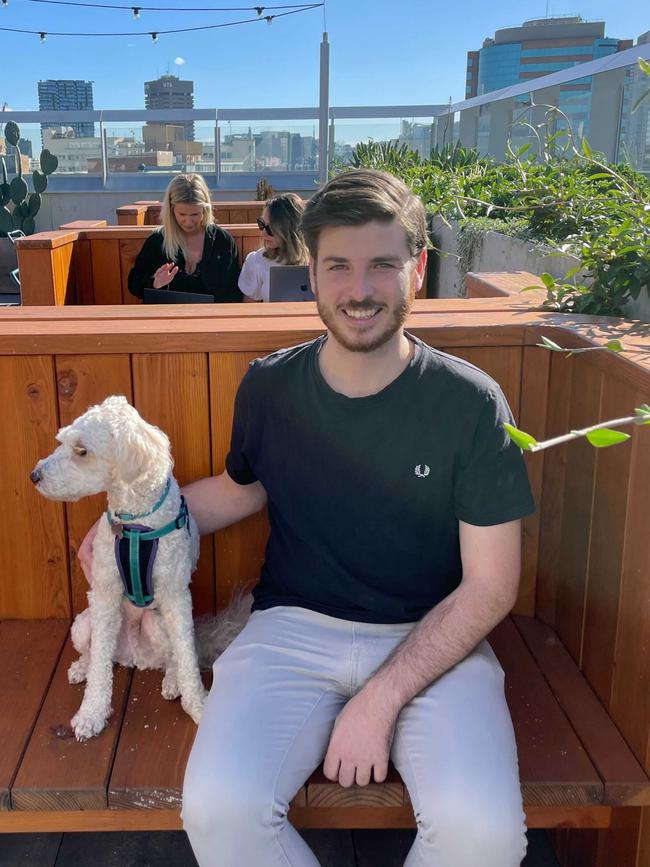Work now, study later: tech firms nab students before graduation
No degree? No problem. Students are securing well-paid internships and full-time jobs early into their studies or without any degree at all as the tech talent wars continue.

Business
Don't miss out on the headlines from Business. Followed categories will be added to My News.
University students are reaping major rewards as the war for tech talent heats up, with many securing well-paid internships and full-time work early into their degrees and, in some cases, without any tertiary study at all.
The Australian has confirmed with industry sources that big tech firms aren’t just poaching potential staff from competitor companies but increasingly targeting university students, hiring consulting firms to come up with strategies to employ and retain the new prospective workers.
For the students, many of whom were told they’d struggle to find work when they first began university, the market has been flipped on its head and the need for a part-time job at the local cafe or grocer has been ditched for well-paid industry experience.
Vincent Zhang, who studies megatronics and computer science at the University of Sydney, is but one of many with options up his sleeve.

The 21-year-old, who works two days per week as a paid intern at the Tech Council of Australia, has two job offers awaiting his response.
Job offers, which arrive via LinkedIn, Slack community channels and internal jobs platforms often come from start-ups who haven’t yet decided on a name but have money to splurge on new talent, Mr Zhang said.
“While larger companies do target students to some extent, they enjoy the privilege of having thousands of students apply,” he said. “With start-ups who actively offer jobs, pitching roles and bargaining power definitely falls more toward the students right now. There is definitely no shortage of work in the tech industry, with many roles being created.”
Questions put to Sydney’s three largest universities drew different responses, with some expressing more concern than others over the prioritising of full-time work over study.
A spokesperson said the University of Sydney wasn’t aware of student poaching, but it was preferable that graduation was prioritised.
“While we don’t encourage our students to accept full-time work before completing their studies, we understand it is ultimately their personal decision,” a spokesperson said.
“What is appropriate for one student might be inappropriate for another, so we encourage any students considering this option to take into account our policy around suspending and resuming their studies and to seek further advice and support if they need.”
The spokesperson added that the university strongly encouraged students to undertake internships, placements and other work-integrated learning opportunities while studying to expand their skills and experience.
“However, we don’t encourage our students to suspend or withdraw from their studies to accept full-time work, though we understand it is ultimately their personal decision,” they said.
A UTS spokesman said it had become common for students in certain faculties to gain work while still studying.

“UTS encourages students to participate in the workforce through internships and other work-integrated learning opportunities, acknowledging the many benefits of industry experience to their learning,” they said.
“Many engineering and IT students complete their degree part-time after being offered ongoing employment with the organisation that hosted them for their senior internship.”
There’s no denying big tech is playing a significant role in job fares, working to increase its presence on campus and actively investing in students with the hope of gaining future employees.
A spokesperson said UNSW’s academic calendar was structured to allow for earlier graduation and to balance full-time work.
“In many degrees, students have a high level of flexibility in their studies including part-time study. In other instances, they can seek approval to take program leave and postpone their studies,” they said.

KPMG head of talent acquisition Rob Dunderdale said tech graduate roles, which account for 15 per cent of all graduate positions, are set to double year on year for the foreseeable future.
The current program employees 151 graduates and 65 interns, whom are called vacationers.
“We know from research that the generation zeders out there are not as forthright and wanting to go to university as someone like myself, perhaps because of the debt that’s associated with the university, but they’re also a lot more eager to get into the workplace,” he said.
To capitalise on that need for work, KPMG offers a two-year placement which begins with 12-18 weeks of paid study or a four-day work, one-day study option to complete a diploma of IT.
Mr Dunderdale said while KPMG had an obligation to offer the programs to those from lower socio-economic backgrounds without tertiary education, they also benefited the firm.


“We’re now able to kind of reach into talent pools that we wouldn’t that may have not necessarily chosen KPMG to start with,” he said.
Priyal Dalal, 22, a UNSW information systems graduate, joined KPMG in February as a cyber graduate at KPMG providing advice on internet security.
When she began applying for jobs in the tech industry, she said offers would come in at least twice per week.
“It feels like there’s definitely a need for what I’ve studied and it gives you hope about the future,” she said.
Asked why she chose KPMG over other offers, Ms Dala said she liked the program. “It kind of gave you a chance to learn on the job rather than having a protective,” she said.
Lachlan Blanksby graduated from Western Sydney University with a computer science degree last week but has been a Cloud Services Engineer with Macquarie Telecom Group since November last year.
On his second day of work, Mr Blanksby told his boss he had an exam. “I asked if I could come in late and boss turned around and asked what it was on and if I needed any help,” he said.
“In our first year, we had organisations come to the university and tell us it would be a struggle to find work. Coming into the industry itself, you’re really on the other side of the coin.”


Patrick Broad, 26, is a quality assurance engineer at EdApp and a computer science student at the University of Technology Sydney. He began working in tech in his first semester.
Mr Broad said the company was happy for to take time out of his day to study and that he wasn’t asked to stay back.
“The rate at which EdApp is expanding is like, absolutely shocking,” he said. “When I first started and asked how long someone had been there, a lot of the time their response would be, ‘I’ve actually only been here for one month, I’m brand new as well’. It’s the same way now. You walk around the office you see a face you’ve never seen before you.”
Mr Dunderdale said young tech workers aren’t just moving into the market at a rapid pace, they’re also climbing the corporate ladder.
“What we are seeing is that because they’re coming in after studying a very specific set of skills, they’re actually starting to progress through the organisation significantly quicker than we would have expected,” he said.
Originally published as Work now, study later: tech firms nab students before graduation





